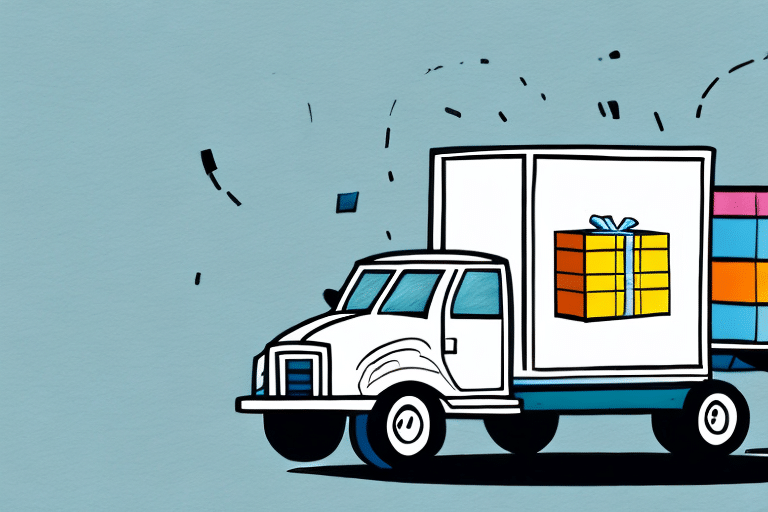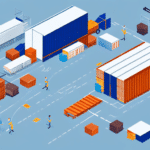Understanding Last Mile Logistics: An In-Depth Guide
In the rapidly evolving world of e-commerce, last mile logistics has emerged as a pivotal component in ensuring customer satisfaction and business success. The term "last mile delivery" refers to the final leg of the supply chain process, where products are transported from a distribution center or warehouse directly to the consumer's doorstep. This stage is critical as it directly impacts customer experience, operational efficiency, and overall profitability.
The Critical Role of Last Mile Logistics in E-commerce
Enhancing Customer Satisfaction
Last mile delivery is the final interaction between a business and its customer. A seamless delivery experience can significantly boost customer satisfaction, leading to repeat purchases and positive reviews. According to a Statista report, 69% of consumers expect their deliveries to arrive within two hours, highlighting the demand for speed and reliability in last mile logistics.
Optimizing Operational Costs
One of the biggest challenges in last mile logistics is managing the high costs associated with the final delivery stage. Efficient route planning and the use of advanced technologies can help businesses reduce these costs. Implementing route optimization software can decrease fuel consumption and improve delivery times, as evidenced by a study from McKinsey & Company.
Innovative Technologies Transforming Last Mile Delivery
Autonomous Vehicles and Drones
Advancements in autonomous technology are revolutionizing last mile delivery. Companies like Amazon and UPS are investing in drones and self-driving vehicles to enhance delivery efficiency. According to a Forbes article, the use of drones can reduce delivery times by up to 40%, especially in congested urban areas.
Artificial Intelligence and Machine Learning
AI and machine learning algorithms are being utilized to predict delivery patterns, optimize routes, and manage inventory more effectively. These technologies enable companies to anticipate demand fluctuations and adjust their logistics strategies accordingly, as highlighted in a Supply Chain Digital report.
Sustainable Practices in Last Mile Logistics
Electric Vehicles and Green Transportation
With increasing environmental concerns, sustainability has become a key focus in last mile logistics. The adoption of electric vehicles (EVs) and other green transportation methods helps reduce carbon emissions. A International Energy Agency report states that electric delivery vans can cut emissions by up to 50% compared to traditional diesel vehicles.
Consolidated Deliveries and Micro-Fulfillment Centers
Consolidating deliveries and establishing micro-fulfillment centers in urban areas can minimize the environmental impact by reducing the distance traveled by delivery vehicles. These practices not only support sustainability but also enhance delivery speed and efficiency, as discussed in a Boston Consulting Group publication.
Overcoming Challenges in Last Mile Delivery
Traffic Congestion and Urban Delivery
Urban areas present unique challenges such as traffic congestion and limited delivery windows. Implementing smart routing solutions and utilizing local distribution hubs can help mitigate these issues. According to U.S. Department of Transportation, smart routing can improve delivery efficiency by up to 30% in congested cities.
Managing Customer Expectations
Meeting customer expectations for timely and accurate deliveries is essential. Providing real-time tracking, offering flexible delivery options, and ensuring clear communication can enhance the customer experience. A survey by PwC indicates that 73% of consumers consider a good delivery experience as a key factor in brand loyalty.
Future Trends in Last Mile Logistics
Integration of Blockchain Technology
Blockchain offers a transparent and secure way to track deliveries, ensuring data integrity and reducing fraud. This technology can streamline the entire delivery process, from tracking shipments to verifying transactions. As per a IBM report, blockchain can enhance supply chain transparency and efficiency by providing an immutable ledger of all transactions.
Increased Use of Robotics and Automation
Robotics and automation are set to play a significant role in last mile logistics, handling tasks such as sorting, packaging, and even delivery. Automated sorting systems can speed up the handling process, while delivery robots can navigate sidewalks and urban environments to make deliveries more efficient. A Robotics Business Review article highlights that automation can increase delivery accuracy and reduce operational costs significantly.
Conclusion
Last mile logistics is a dynamic and essential aspect of the e-commerce ecosystem, directly influencing customer satisfaction and business profitability. By embracing innovative technologies, sustainable practices, and strategic solutions, businesses can overcome the inherent challenges of last mile delivery. As consumer expectations continue to evolve, investing in efficient and reliable last mile logistics will remain a critical factor for success in the competitive e-commerce landscape.






















